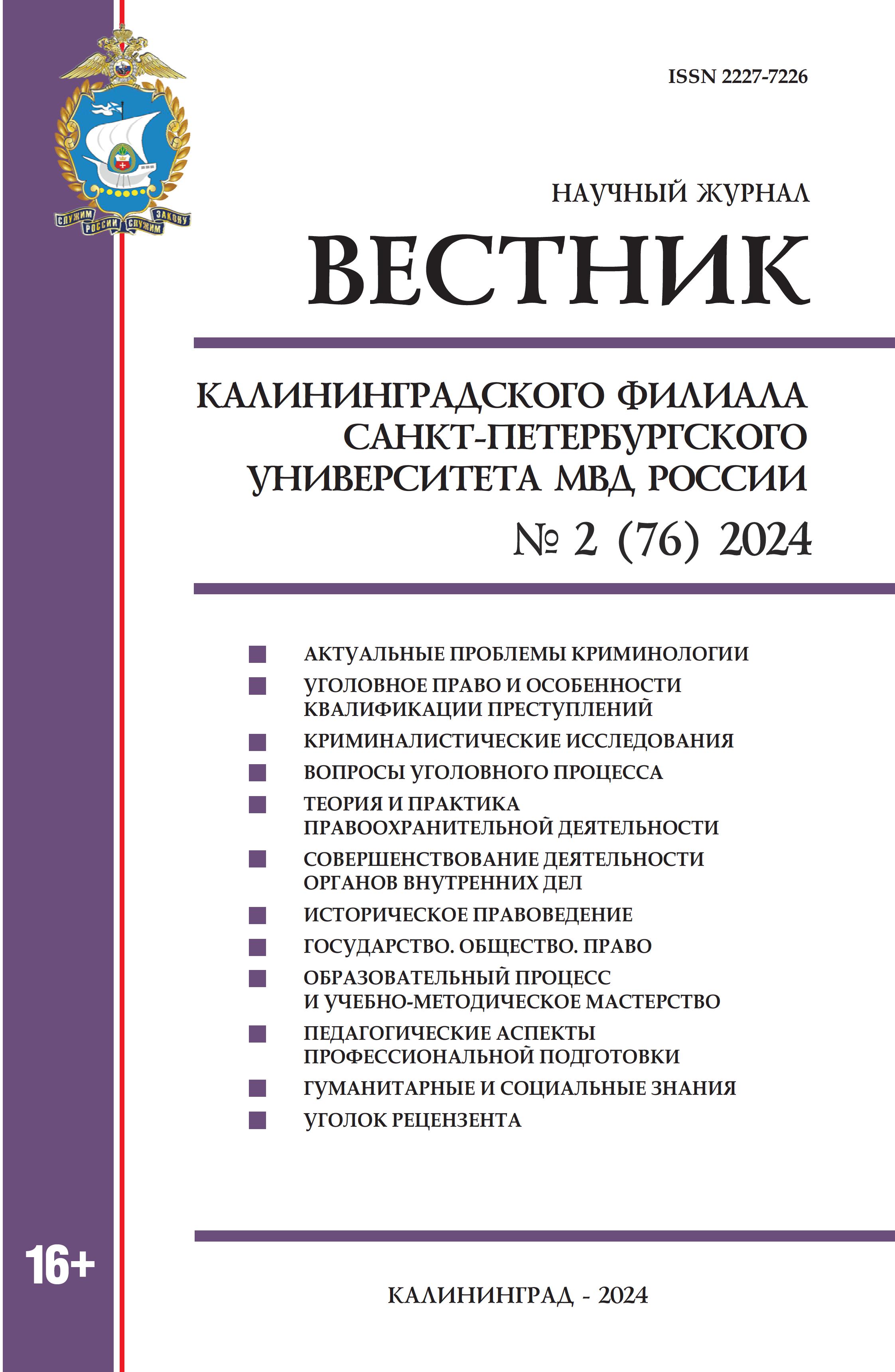Kaliningrad, Kalinigrad, Russian Federation
The introduction of the «lifelong learning» paradigm into public practice leads to a constant increase in the need for mobile education, with the help of which individual educational trajectories are built. One of the most popular forms of realizing this need is online courses on the Internet, which have become increasingly widespread in recent years. The author notes the presence of two significant problems regarding the organization of courses on rhetoric on the Internet: 1) the lack of uniform approaches to understanding the general principles and techniques of teaching courses on the Internet; 2) the lack of formulated criteria for selecting content for courses on rhetoric on the Internet. In this regard, the purpose of the study is to describe the pedagogical principles on which training in online courses in rhetoric should be based so that they meet the general requirements laid down in the Federal State Educational Standard. To achieve this goal, the following tasks are solved: analyze the content of the most popular rhetoric courses currently offered on the Internet; formulate basic approaches to teaching in online courses; evaluate the specifics of using these approaches in rhetoric courses. Methods. To solve the problems and evaluate the collected facts, a set of complementary general scientific (synthesis, abstraction, analogy, etc.), pedagogical (generalization of teaching experience; diagnostics of the level of manifestation of teachers’ professional potential; assessment of the effectiveness of applied teaching methods, etc.) and philological (discourse analysis, rhetorical analysis, etc.) methods. Results. It has been established that a systematic approach to content selection requires compliance with the following pedagogical principles: scientific nature, redundancy (variability), multimodality. A synergistic approach to organizing the learning process requires adherence to the principles of personalization, interactivity, self-organization, and expediency. The acmeological approach to motivating students requires adherence to the principles of success, practice-oriented, and student-centered learning. In general, when determining the most optimal balance between different methods and approaches, one should be guided by the principle of proportionality.
Online course, rhetoric, methods of teaching rhetoric, systematic approach in education, synergetic approach in education, acmeological approach in education, effectiveness of education.









